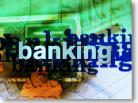|
Banking on bounced checks
|
 |
June 25, 1998: 12:17 p.m. ET
Consumer group finds banks use "traps" to encourage overdrafts
|
NEW YORK (CNNfn) - U.S. banks are pocketing $5.2 billion a year in bounced check charges by using processing "traps" to make people more likely to overdraw their accounts, according to a report released Thursday.
The findings by the Consumer Federation of America, a Washington, D.C. advocacy group, show that bounced check fees are 11 to 32 times higher than the actual cost to the bank.
"Exorbitant bank fees boost the cost of banking for consumers who struggle to make ends meet," said Jean Ann Fox, director of consumer protection for the group.
The report said banks earned $918 million a year in profit for returning deposited checks that bounce, or about 9 to 11 times higher than the actual cost.
The American Banking Association argues the fees discourage people from bouncing checks, just like parking tickets discourage people from leaving their cars near fire hydrants.
"We feel we have an obligation to preserve consumer confidence," said Janet Eissenstat, a spokesman for the ABA in Washington, D.C.
But the Consumer Federation said banks actually encourage check-bouncing by processing the largest check first on a given day -- so they can bounce more smaller checks and charge a steep fee on each one.
For example, if a person writes three checks in one day for $400, $350 and $500, the bank would process the $500 check first even if it wasn't the first received -- so if the other two checks bounce, the bank can charge a fee twice. Most consumers would prefer banks to process checks in the order they are received.
"Banks set traps," said Janice Shields, director of the Institute for Business Research who wrote the report.
Banks use other ruses, according to the report: Charging fees for people who bounce an excessive number of checks; charging fees on even the smallest checks that bounce; eliminating daily limits on bounced check charges; and penalizing bank employees who waive the fees.
Large banks charge the most, with fees of about $20.29 a check, while smaller banks charge roughly $15.05, according to the Federal Reserve Board.
People who open "no frills" accounts might find bounced check fees that are twice as high, the report said.
The report found that only 5 percent of banks reported a drop in bounced checks when they raise fees.
"(Bounced) check fees are a source of income that's yours for the taking," the report quoted one unnamed industry consultant as saying.
Overdraft protection might also be a solution, but it may be costly, the report said. About 17 percent of banks charge $15 a year for overdraft protection, while large banks charge 16.5 percent interest on the amount of coverage they extend. Some banks also provide minimum lines of credit that greatly exceed the amount of the bounced check.
For example, if a person has $10 in his account and bounces a check for $25, the bank will lend the account $300 at 16.5 percent interest -- instead of simply lending $15 to cover the $25 check.
You can avoid bouncing checks by:
- Keeping your checkbook balanced.
- Knowing the laws. Federal law requires bank to clear local checks in two business days and other checks in five business days.
- Know your bank's practices. A bank may record ATM deposits after 2 p.m. on the next business day, for example.
- Ask for a waiver if you bounce a check. Bank tellers and managers often have the authority to waive fees.
- If your salary is deposited directly, find out when the bank makes the money available. Some banks make the money available at the beginning of the day to encourage direct-deposit.
- Arrange overdraft protection if the cost is less than the bounced check fees.
- Shop around at different banks for the lowest fees.

-- by staff writer Martine Costello
|
|
|
|
|
 |

|

